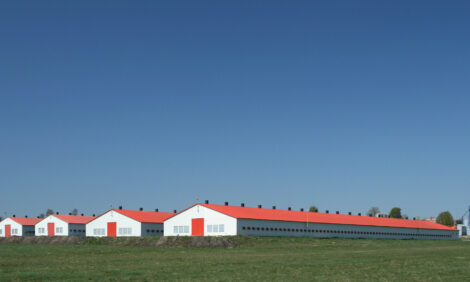



Over-Supply Puts Pressure on Egg Prices
NEW ZEALAND - Egg producers are reporting that they are selling eggs at below cost.Stuff reports that the majority of poultry farmers are being forced to sell their eggs below cost as the unregulated industry faces significant oversupply, a Lichfield farmer says.
Paul van der Heyden, part-owner of Heyden Farms which runs a flock of 120,000, told Waikato Times that the industry was cut-throat and unless farmers curtailed their production, many poultry farmers would be forced into bankruptcy.
He said: "There is no money in it all at the moment. And it's impossible to sell farms. With feed prices predicted to go up, it's impossible to make a profit."
Egg trays selling for NZ$5.50 GST inclusive are being sold below cost. He said: "Either the producer or the retailer is losing money."
Even a three or four per cent increase in egg production nationwide was enough to create a serious glut.
Other issues included the recession, forecasting stock production levels and a drop in sales six months ago.
Egg Producers Federation executive director, Michael Brooks, agreed there was an oversupply in the market place. He said: "It's a case of market supply and it's a fully deregulated market."
He believed the focus for farmers should be on differentiating their brand.
"Everyone has to find their market niche and sell to their consumers."
Lichfield Poultry Farm owner, Maria Paterson, blamed large-scale farm operations dumping eggs at reduced prices, reports Stuff. She struggled to sell eggs on her 9000-flock farm at peak production times.
She said: "I wouldn't want anyone else to come into the industry. Some farms just get bigger and bigger and don't know when to stop and its those people that saturate the market with cheap eggs. There isn't a market for more eggs. They are forever trying to push the little guy out."
New Zealanders eat an average 223 eggs per person per year, ranking above Britain (183) and Australia (196) but lower than the United States (283), the federation says.
Mr Brooks said farms sizes had increased to assist in running costs, with pressures on margins for profitability. Grain accounts for almost 70 per cent of an egg price. In the last five years, an additional 300,000 laying hens were added to the national flock of 3.2 million laying hens which produced 972 million eggs in 2009. Fifty per cent of eggs are sourced by supermarkets, 18 per cent for industry (including bakeries or egg powder) and the remainder used in cafes and sold at fruit and vegetable shops.
Last week, the country's 135 barn, free-range and cage egg producers voted to continue to fund an industry levy on egg production for a further six years, concludes the Stuff report.
Further Reading
| - | Go to our previous news item on this story by clicking here. |








